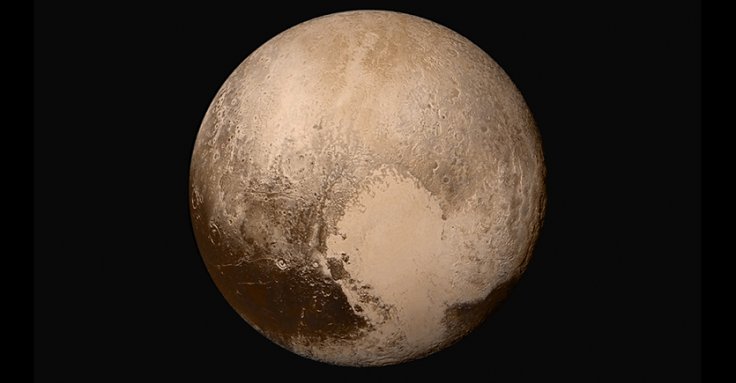
In 2016, space researchers had revealed that Pluto's atmosphere was growing, and this trend was observed since 1988. However, new observations suggest that Pluto's atmosphere has completely collapsed. The study conducted by Ko Arimatsu at Kyoto University in Japan and colleagues found that the atmospheric pressure in Pluto has dropped by over 20 per cent since 2016.
Peculiar Nature of Pluto's Atmosphere
Several previous studies had suggested that Pluto's atmosphere used to expand as the planet approached the sun, and used to contract as it receded. During the time of its close approach, the planet usually releases nitrogen, methane and carbon dioxide into the atmosphere. When the planet moves away from the sun, the temperature on the planet plummets drastically and will result in ice storms.
It was in 1989 that Pluto made its recent close approach with the sun and it has since been moving away. Scientists reveal that Sputnik Planitia, a large, white, ice-covered basin that stretches across a large part of one hemisphere in Pluto plays a crucial role in regulating Pluto's atmosphere. When Sputnik Planitia faces the sun, gases get released, and this is why Pluto's atmosphere continued expanding even after the planet moved away from the sun.
But now, simulations suggest that Sputnik Planitia in Pluto might have started cooling down, causing the atmosphere to condense into ice. Scientists also believe that there could even be some unknown reasons behind the mysterious collapse of Pluto's atmosphere.
Alien Existence on Pluto?
A few months back, space expert Willian McKinnon had suggested that the current conditions in Pluto might have harbored some brand new alien life forms. The researcher revealed that there could be a sufficient amount of ammonia on Pluto.
"You do not have space for bacteria on Pluto, much less for fish or other life as we understand it here in the world. But, similar to the methane seas on Titan, Saturn's primary moon, this research study raises the concern of whether brand-new life types might exist in these cold, unique liquids," said McKinnon.








